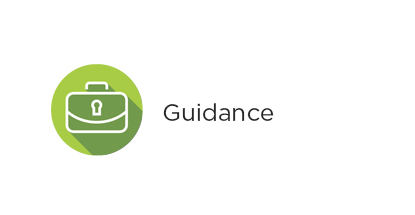
A common idiom is that the only certainties in life are death and taxes.
The death of a practitioner can create a lot of stress and unknowns for those left to take care of their business and personal matters. The objective of this article is to provide answers to frequently asked questions. A practitioner can take some of these steps in advance, to ensure that their estate is better prepared to handle the impact on the practice upon death of a practitioner.
Assisting Accountant vs. Executor
The role of the Assisting Accountant is very specific and is detailed in this linked article on the Assisting Accountant. The role of the Assisting Accountant is to return client records upon the death of the practitioner, and then the role of the Assisting Accountant ends. The role of the executor is to manage the estate, and the deceased practitioner’s firm is an asset that belongs to the estate. While their respective roles are different, some of the tasks of the executor noted in this article could also be performed by the assisting accountant, but only if the assisting accountant is willing to do so. Depending on the size of your public practice, it might be worth considering appointing a separate executor for the business, especially one that has knowledge about the operations of a public practice office.
Q1. Who should be notified at CPABC?
The executor can notify the membership department so that the member’s information can be updated and the public practice department to ensure firm registration and public practice licensing information is updated.
Q2. Can the estate of the deceased receive a partial refund on membership dues, firm fees, and public practice licensing?
Yes, when the membership department is notified as noted above, that would also be the time to request partial refunds. The membership department will in turn inform the public practice department who will update records related to public practice licensing.
Q3. What happens to the firm registration (does it expire on death of the practitioner)?
The registered firm of the deceased practitioner does not expire automatically. Therefore, when a sole practitioner passes away, the executor will contact the membership department to let them know. The membership department will inform the public practice department who will update the records accordingly.
Q4. When/what do I have to tell the professional liability insurance company? What ongoing coverage might be needed?
Assuming that there are no major changes expected to the firm in the short term, discussing this eventuality with the insurer now may be helpful. In accordance with Bylaw Regulations 1301/1(5), the estate is required to “ensure that prior acts and omissions are covered by adequate professional liability insurance either through riders to an ongoing insurance policy or a separate discovery policy, for a minimum of six years after ceasing to be in public practice.” Contact the insurer to inform them of the death of the practitioner and for their advice on how to provide post-mortem coverage to satisfy the bylaw.
Q5. What happens with client records?
In most cases, the deceased practitioner’s working papers supporting the work that was done, has to be retained for a period of time. However, there may be client information that is best returned to the client rather than retained. One of the key roles of the Assisting Accountant is to help return client information and records in a safe and secure manner. The Assisting Accountant is not required to complete any unfinished work nor to assume the continuance of the practice.
For additional guidance on file retention, see Rule 218 in the CPABC Code of Professional Conduct.
Q6. Confidentiality of records
Confidentiality of records always remains important. Review the article on How Secure Are Your Business Records and develop policies that are sustainable after the death of the practitioner.
It is especially important to prepare and provide detailed instructions to the executor on how to ensure confidentiality is maintained, as those taking care of the estate might not be CPAs and therefore might be unfamiliar with the confidentiality obligations in the CPABC Code of Professional Conduct.
Q7. Continuation of client service. Selling or transferring the client list.
The client list of the practice may have some value to the estate. The practitioner may wish to sell the book of business to another practitioner either prior to death, or the estate may do so after death. The executor would benefit from clear instructions on what to do with the clients.
Another practitioner may purchase or assume the deceased practitioner’s clients. This sale would be handled by the executor and there should be an appropriate transition of the clients to the new practitioner from the deceased practitioner.
Q8. Additional considerations and/or instructions to the estate
The practitioner might want to consider preparing additional instructions to their family or to the executor of their estate including information about some of the following items:
- Office access (keys, fobs, passes, alarm codes);
- Computer system and client files/records/contact access (login name, passwords);
- Contact information for:
- Office rental (including utilities)
- Office equipment rental (printers, computers, etc.)
- Software subscriptions (CaseWare, PEG/PACT, TaxPrep, time records, billing, client management, etc.)
- Miscellaneous vendors (stationary, mail, office kitchen supplies)
- Any other considerations
Other Useful Resources
- Guidance on Preparing Your Practice for an Emergency
Rate this Entry
Current rating: 0 yes votes, 0 no votes

